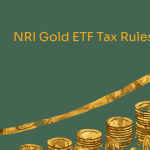If you invest in stocks or wish to start your investment journey, you can always learn more. Thankfully, there are innumerable books that can teach you to be a smarter investor. This blog post acts as your compass, guiding you through some of the best books to equip you with the knowledge and confidence to navigate the financial markets.
Books to learn the basics of investing
- The Intelligent Investor by Benjamin Graham: Considered the bible of value investing, this timeless classic by Benjamin Graham emphasises a long-term, value-oriented approach to stock selection. Graham's concept of "margin of safety" and his focus on fundamentals remain valuable cornerstones for any investor.
- The Little Book of Common Sense Investing by John C. Bogle: John Bogle, the founder of Vanguard, champions low-cost index fund investing in this approachable book. Bogle argues that for most investors, consistently striving for market returns through index funds is a more realistic and cost-effective strategy than attempting to beat the market.
- A Random Walk Down Wall Street by Burton Malkiel: This insightful book by Burton Malkiel delves into the concept of market efficiency, suggesting that stock prices already reflect all available information, making it difficult to consistently outperform the market. Malkiel advocates for a diversified portfolio with a long-term perspective.
Books to learn how to invest: intermediate-level
- One Up On Wall Street by Peter Lynch: Peter Lynch, a legendary investor, shares his practical wisdom in this book. Lynch emphasises the importance of understanding the companies you invest in and highlights the potential for finding multibagger stocks (stocks that experience significant growth) through thorough research.
- The Essays of Warren Buffett: Lessons for Corporate America by Warren Buffett and Lawrence Cunningham: Gain invaluable insights from the "Oracle of Omaha" himself, Warren Buffett. This compilation of essays offers a glimpse into Buffett's investment philosophy, focusing on value investing, long-term thinking, and a margin of safety.
- Security Analysis by Benjamin Graham and David Dodd: This comprehensive book by Benjamin Graham and David Dodd delves deeper into the principles of value investing. While it can be more technical than "The Intelligent Investor," it provides a rich resource for serious value investors seeking a deeper understanding of security analysis.
Beyond the basics
- The Psychology of Money by Morgan Housel: Morgan Housel's captivating book explores the often-overlooked psychological aspects of investing. He sheds light on how our behaviour and emotions can influence our investment decisions and provides valuable insights for developing a healthy relationship with money.
- Thinking, Fast and Slow by Daniel Kahneman: This Nobel Prize-winning book by Daniel Kahneman explores the two systems that drive our thinking – fast, intuitive thinking and slow, deliberate thinking. Understanding these systems can help investors identify and avoid cognitive biases that can lead to poor investment decisions.
- The Millionaire Next Door by Thomas J. Stanley and William D. Danko: Contrary to popular belief, most millionaires aren't flashy celebrities. This book by Thomas Stanley and William Danko explores the habits and behaviours of everyday millionaires, offering valuable lessons for building long-term wealth.
Remember: There's no "one-size-fits-all" approach to investing. The best book for you depends on your experience level, investment goals, and risk tolerance. Consider your investment style and choose books that resonate with your approach.
Additional tips
- Don't just read, implement: The best way to learn is by doing. Once you've gained some knowledge, consider starting with a small investment and gradually building your portfolio as you gain experience and confidence.
- Complement books with other resources: Books provide a strong foundation, but consider supplementing your learning with online courses, financial blogs, and investment podcasts to stay informed on current market trends and investment strategies.
- Seek professional guidance: A qualified financial advisor can offer personalised advice tailored to your specific financial situation and risk tolerance.
By equipping yourself with knowledge and developing sound investment strategies, you can embark on your investing journey with greater confidence. Remember, successful investing is a marathon, not a sprint. Be patient, stay disciplined, and enjoy the learning process.




